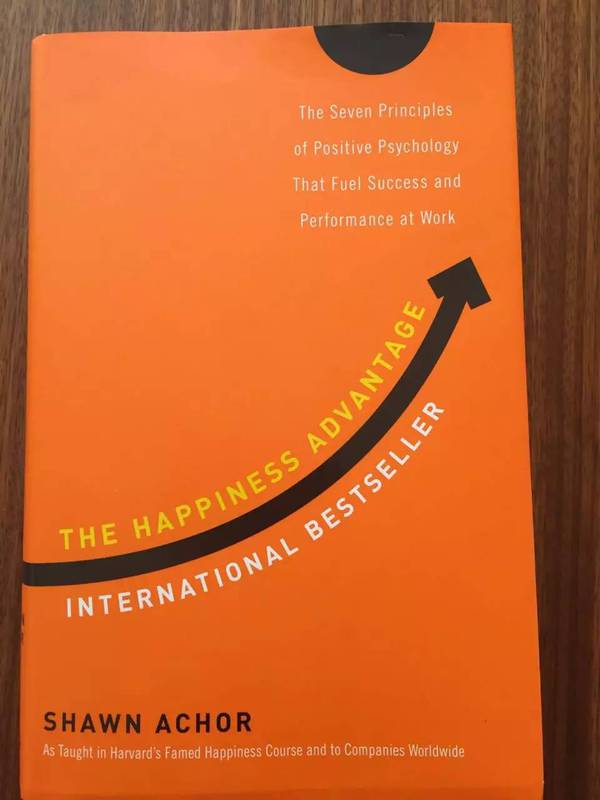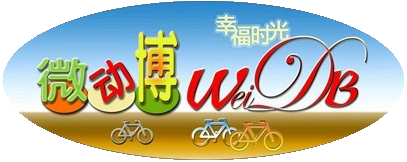读书分享:快乐竞争力
anonymous-104090 12/31 51994.0/1

Happiness advantage by Shawn Achor,
刘昕,2015年末,千读群读书分享
Happiness : 快乐,幸福,积极,乐观,正向,正能量
Def 1: positive feelings about present and future
Def 2: pleasure, engagement, and meaning (享受,积极投入,意义)
Main message: Positive brains are (biologically) more productive than neutral or negative brains. Therefore, positive thinking makes oneself more productive, and thus more successful. Not the other way around.
积极的大脑(生物)较中性或负面的大脑工作效率更高。因此,积极心态,使自己更有效率,从而更成功。不是反过来的。
Many of us are trained by profession or by tradition to look for flaws or errors. We see what we focus on (e.g., the famous experiment of guerrilla walking in the basketball court). So if we focus on positive things, e.g., today is sunny instead of hot (both are true), we observe and experience more positive things and become more positive.
我们很多人的专业或传统训练是习惯挑毛病或错误。我们看到我们想看到的(例如,著名的心理实验:大猩猩走在了篮球场)。因此,如果我们专注于积极的事情,比如,今天是晴天,而不是热(尽管两者皆是),我们会观察和体验更加积极的事情,变得更加积极。
We can learn/practice to think more positively by (also from his TED talk):
3 gratitude (name three different things that you are grateful for a week)
journaling (a positive event the past 24 hours, a variation of the 3 gratitude)
exercising (teach your brain to think positive things)
meditation (focusing, not multitasking)
random act of kindness
我们可以学习/实践(也来自他的TED演讲)更积极地思考:
感恩,说出三件感的事情。
日志(一个积极的事件在过去24小时内,3感激之情的变化)
锻炼(教你的大脑去思考积极的事情)
冥想(聚焦,没有多任务处理)
善良的随机行为
I do want to mention a caveat. In my opinion, the author oversimplified success or positive thinking. This is a potentially dangerous aspect of being (too) positive, especially when a situation calls for changes. For example, one may stick to a mediocre job and not look for real changes/challenges if not done appropriately.
我想提一个警告。在我看来,作者过于简单化的成功或积极的思考。例如,如果没有适当地进行,人们可以坚持一个平庸的工作,而不是寻找真正的变化/挑战。
7个积极心理学法则, The following is a more detailed discussion of the 7 principles of happiness.
1. The Happiness Advantage: positive brains have a significant biological advantage over brains that are neutral and an even more substantial biological advantage over brains that are negative. 举例:有棒棒糖的医生。帮助自己正向的东西,每个人不一样,有meditate,exercise, positive infuse (e.g., a nice picture), something to look forward to, spend money on experience not material goods, random conscious act of kindness. 工作场合:经常鼓励和认可,具体,正向的语气。Losada line: 正向对负向交流的比例至少需要是2.9:1, 建议6:1.
快乐优势:积极的大脑相对于中性的大脑负面的大脑,有更大幅度的生物学优势。举例:有棒棒糖的医生。每个人有不一样的让自己更积极的办法,比如:meditate,exercise,积极注入(例如,一个漂亮的图片),有所期待,花钱买经验,没有物质财富,善良的随机自觉的行为。
2. The Fulcrum and the Lever: 潜能的“阿基米德定律”. Having a positive mindset (fulcrum) can leverage power of happiness to be more productive. Having a positive mindset, we are more likely to succeed a challenging task, having a negative mindset, we are more likely to fail. “(1) the length of our lever- how much potential power and possibility we believe we have; (2) the position of our fulcrum - the mindset with which we generate the power to change”. Ex: 告诉老师三个平常的孩子是天才,学期结束的时候,他们的表现超常。把一群75岁的老人放在他们55岁的环境一周,他们身体和外贸都变年轻了。
Growth mindset.
A job , a career, a calling (find meanings in our work and thrive).
when we believe in other’s potential, they reach their potential. People act as we expect them to. Identify their strengths (like Ness)
Caveat: realistic expectation (superman’s cape), true for both work and kids.
支点与杠杆:潜能的“阿基米德定律”。 面对一项艰巨的任务,有一个积极的心态,我们更有可能取得成功,具有负的心态,我们更有可能会失败。 “
3. The Tetris Effect: 俄罗斯方块效应-训练思维发现机会. Playing Tetris straight for three days, one sees Tetris blocks everywhere. Many of us are trained by profession (e.g., accountant, lawyers) or by tradition to look for flaws or errors. Brains are biased - we see what we focus on (e.g., the famous experiment of guerrilla walking in the basketball court and the Prius example). So if we focus on positive things, e.g., today is sunny instead of hot (both are true), we observe and experience more positive things and become more positive.
when our brain focuses on the positives, three good things happen: happiness, gratitude, and optimism.
Ways to train ourselves: 3 gratitudes a day or journaling it. The more we train us to see positives, the more likely we see positives.
Rose-tinted glasses: let the big problem through, but still being optimistic. I.E. stay realistic, see our problems, but remain positive.
玩俄罗斯方块三天,人们看到俄罗斯方块块随处可见。我们许多人都通过专业培训的(如会计师,律师)专注于挑毛病或错误。大脑有偏见 - 我们看到我们关注的东西。因此,如果我们专注于积极的事情,我们观察和体验更加积极的事情,变得更加积极。
4. Falling Up: When experiencing a major crisis or encountering a major threat, how selecting the right mental "path", the 3rd path. Instead of post traumatic stress disorder, one may in fact experience post-traumatic growth. Going through difficulties is how one grows. Positive attitude is to explain the failure as temporary and local, instead of global and permanent. Using growth mindset, see difficulties/failures as an opportunity to grow.
Adversity, belief, consequence, disputation (bad things are not as bad as it seems in general)
向上跌倒:当遇到重大危机或遇到的一大威胁,如何选择合适的心理“路径”,第三路径。经历困难是成长的机会。积极的态度来解释失败是暂时和局部,而不是全球性和永久性的。使用增长的心态,见困难/失败为契机,成长。
5. The Zorro Circle佐罗的圈 (缩小注意力范围,扩大能力范围): Feeling in control is an important aspect of emtional and physical health. (just imagine the loss of control feeling of facing 10K emails to clean up.) When coping with crisis or threat or big challenges, break it into Controllable and uncontrollable. For the big controllable project, focusing first on small, manageable goals, and then gradually expanding our circle to achieve progressively bigger ones. Similar to the idea in the “Practicing mind”, simplify, short, slow, and small. a good cure for procrastination. Think about marathon (hal higdon’s half M training program.)
佐罗圈佐罗的圈:有控制的感觉情绪和身体健康的一个重要方面。 (试想一下,面对10K的电子邮件进行清理的失控感。)对于可控制的大工程,重点简化,变小,变成可执行的目标,然后逐步扩大我们的圈子逐步实现更大的。
6. The 20-Second Rule: Putting things into action is very critical. Common sense is not common action. We are merely bundles of habits. We tend to take the least resistant path, especially when tired. Willpower is limited after all. We help ourselves by putting desirable things close and easy access (e.g., wearing exercise clothes the night before and healthy snacks handy), and put bad things far and hard (e.g., junk food). Even 20-second can be too much an effort to do a good thing (e.g., playing guitar or exercising). So remove it from what you want to do and add it to what you do not want to do.
A very good trick: making decisions is hard (e.g., when to exercise, what to exercise, which paper to read), so make decisions before hand. In terms of exercise, build a routine (so one does not need to think about it) instead of “when I have time”.
path to distraction: email, facebook, wechat, etc. turn them off, leave them far away, disable the Internet. (add 20 seconds )
20秒规则:把想法付诸行动是非常关键的。习惯的力量。我们倾向于采取最少抵抗的道路,尤其是累的时候。毕竟意志力是有限的。我们可以把自己期望的东西弄得很方便(例如,前一天晚上穿上运动服装和健康的食物),并把不好的东西弄得很远很不方便(如,垃圾食品)。
7. The Social Investment: When challenged or threatened, "how to invest more in one of the greatest predictors of success and excellence - our social network support." I would like to add: quality beats quantity. A few good relationships is far better than a lot of mediocre ones.
在此谢谢群里的朋友们。


